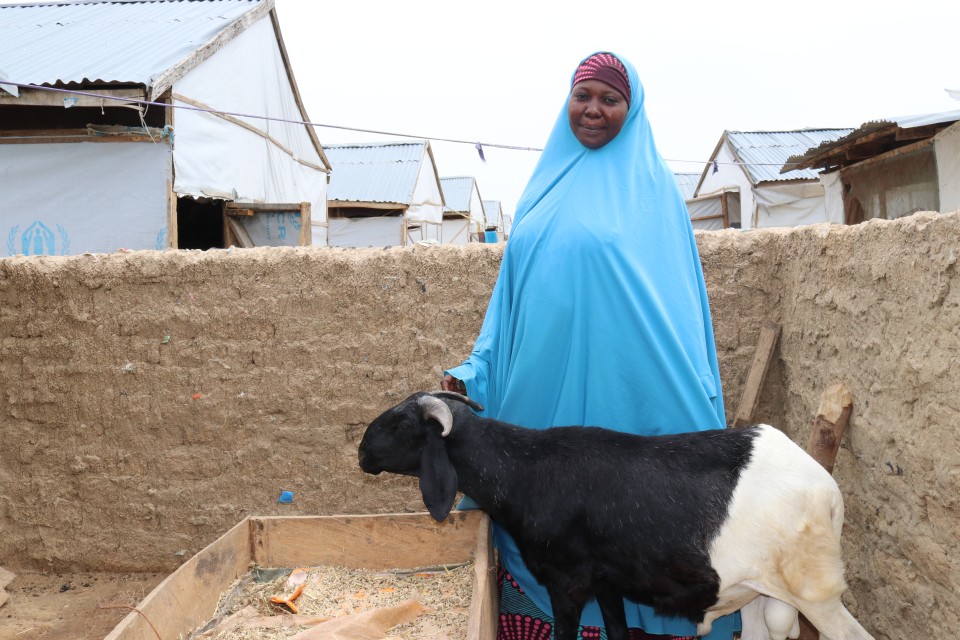Affected by Conflict, yet not broken: “I want the best life for my children”.
Amina Bukar is a 42-year-old mother of 10 children standing against all the odds to build a fulfilling livelihood for herself and her children despite being affected by the prolonged armed insurgency and living in camp in Northeastern Nigeria.
Date:

Amina used to live peacefully in Gwoza with her husband and children in the Northeast of Nigeria, before armed insurgencies raided her home in 2014. Her husband was killed by the insurgents, forcing her to run away with her children to Mubi – Adamawa state – for safety, where they lived in an Internal Displaced People’s camp for four (04) months.
In Mubi, her daughter was often sick due to unfavorable living conditions and lack of livelihood to seek healthcare. In 2015, together with her children and several others affected by the conflict, Amina got relocated to the Bakassi camp in Maiduguri, thanks to the governor of Borno state.
With 10 children under her care, Amina lived in Bakassi camp for five years, depending on state support and benevolence of others, until she was identified for capacity building through the gender mainstreaming in agriculture development intervention under the Women’s Economic Empowerment programme of UN Women.
Thanks to an European Union’s funding, in partnership with the Food and Agriculture Organization (FAO) and the World Food Programme (WFP), Amina, as many other women, received capacity training on backyard gardening and cooperative skills to enable them to generate a source of income. She received some cash from FAO, chicks, and poultry feed from WFP as a start-up for agribusiness.
“I received 12 chicks with feeds including N27,000 (US$50) and successfully fattened them. With coaching and guidance from UN Women, I was able to sell the chicken; together with sales of proceeds from my garden, I bought two sheep and ram lamb to fatten them for sale during festive seasons, before buying new ones to fatten them up again”, Amina Bukar.
Through the cooperative skills she received, Amina has also been able to diversify her activities by learning the making of liquid soap for sale. In addition, she buys honey wholesale and retails it as a lucrative venture in her community.Amina started with two sheep and a ram lamb two years ago and has been able to sell 17 rams with a ram selling for N60,000 ($US110). Currently, she invests her income in her children’s education, health, business and aims to acquire lands for each child.
“I do not want my children to become beggars and a burden on others but to go further in their education to tertiary level. I want to see all my children in school so that they can have a fulfilling life. The only thing I can leave my children in my absence is good education to enable them become independent and not victims of early marriage”, Amina Bukar.
The Gender Mainstreaming in Agriculture Development under the Women’s Economic Empowerment programme by UN Women is being funded by the European Union in partnership with FAO and WFP. The project seeks to promote enhanced material that would lead to increased income security and economic independence for women and girls in the northeast region.